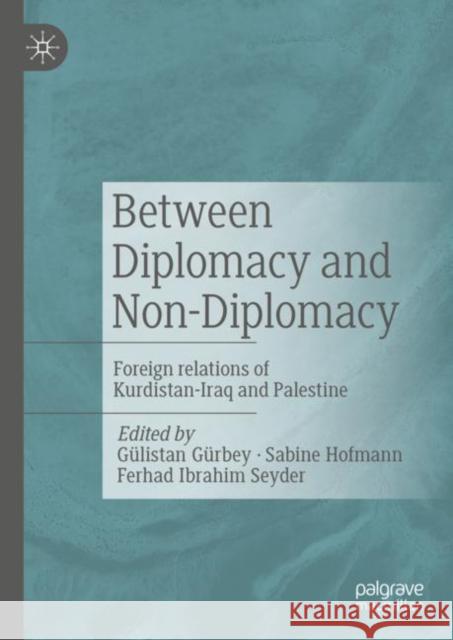Between Diplomacy and Non-Diplomacy: Foreign Relations of Kurdistan-Iraq and Palestine » książka
Between Diplomacy and Non-Diplomacy: Foreign Relations of Kurdistan-Iraq and Palestine
ISBN-13: 9783031097553 / Angielski / Twarda / 2023 / 335 str.
Between Diplomacy and Non-Diplomacy: Foreign Relations of Kurdistan-Iraq and Palestine
ISBN-13: 9783031097553 / Angielski / Twarda / 2023 / 335 str.
(netto: 477,32 VAT: 5%)
Najniższa cena z 30 dni: 497,71 zł
ok. 20 dni roboczych.
Darmowa dostawa!
This book compares the involvement of Kurdistan-Iraq and Palestine (Palestinian Territory of the West Bank and Gaza Strip) in international relations from the viewpoint of their practical performance. In particular, it provides an overview over the current Kurdish and Palestinian paradiplomatic activities and their practical performance in terms of their capabilities, capacities and practical achievements. The contributing authors analyze the evolution of paradiplomacy, the domestic legal and institutional framework, the goals, instruments, and capabilities of Kurdish and Palestinian paradiplomacy, and selected foreign relations. The book identifies the similarities and differences between the paradiplomacy of Kurdistan-Iraq and Palestine with regard to a set of guidelines: causes, legal foundations, institutionalization, predominant motives, practical implementation, and outcomes of paradiplomacy. It provides empirical explanations about how and why Kurdistan-Iraq and Palestine develop and practice paradiplomacy and contributes to a better understanding of Kurdistan-Iraq’s and Palestine’s involvement in international affairs and their activities.
This book compares the involvement of Kurdistan-Iraq and Palestine (Palestinian Territory of the West Bank and Gaza Strip) in international relations from the viewpoint of their practical performance. In particular, it provides an overview over the current Kurdish and Palestinian paradiplomatic activities and their practical performance in terms of their capabilities, capacities and practical achievements. The contributing authors analyze the evolution of paradiplomacy, the domestic legal and institutional framework, the goals, instruments, and capabilities of Kurdish and Palestinian paradiplomacy, and selected foreign relations. The book identifies the similarities and differences between the paradiplomacy of Kurdistan-Iraq and Palestine with regard to a set of guidelines: causes, legal foundations, institutionalization, predominant motives, practical implementation, and outcomes of paradiplomacy. It provides empirical explanations about how and why Kurdistan-Iraq and Palestine develop and practice paradiplomacy and contributes to a better understanding of Kurdistan-Iraq’s and Palestine’s involvement in international affairs and their activities.











